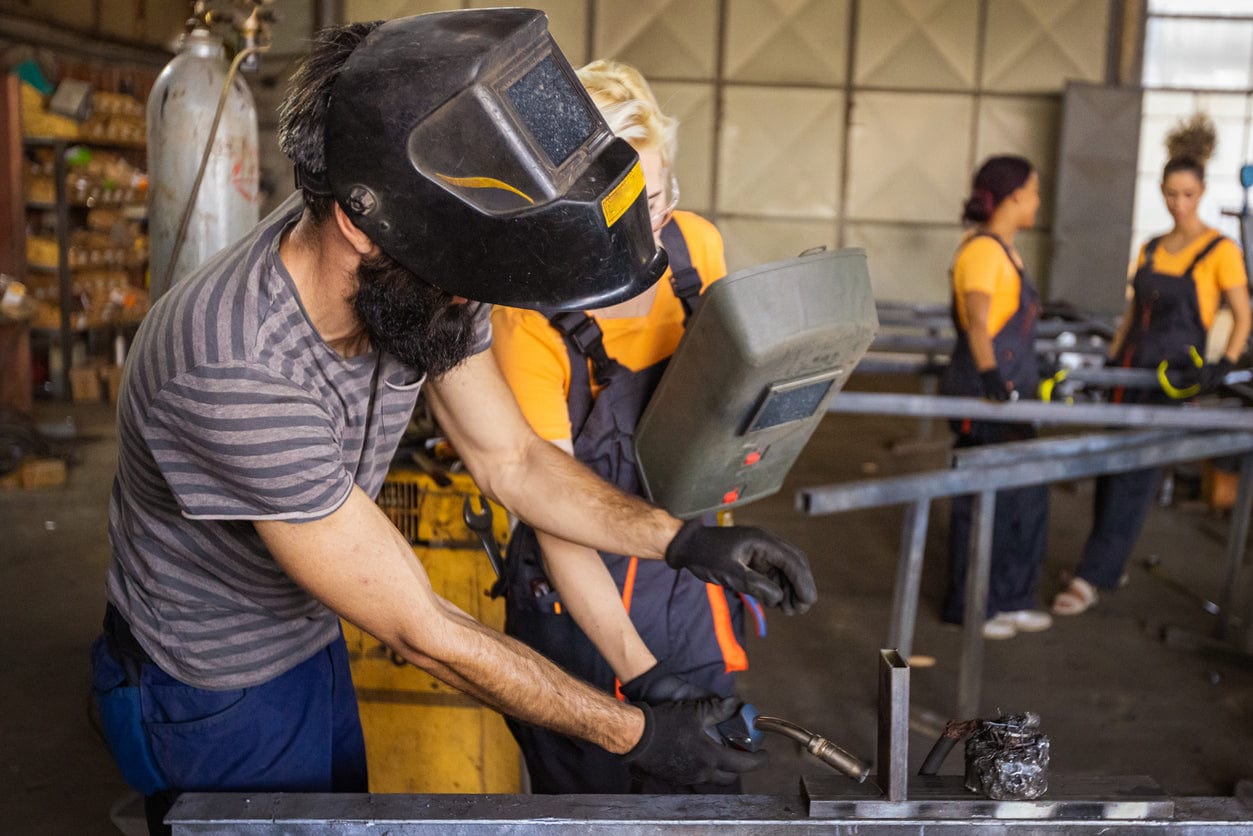How to Pass Your Welder Qualification Test and Avoid Common Mistakes
Passing a welder qualification test is an important step in advancing your welding career. Certification demonstrates your ability to meet industry standards and can open the door to new job opportunities. However, many welders struggle with these tests due to a variety of reasons. Whether you're preparing for your first certification or preparing to retest, understanding what causes failure and how to avoid these pitfalls can make all the difference.
What to Expect in a Welder Qualification Test
The purpose of qualifying the person who will use a joining process is to demonstrate that person's ability to produce a sound welded joint when using a welding procedure specification (WPS). A successful weld test must pass visual inspection and additional testing, such as destructive or nondestructive evaluation, to ensure the weld meets the necessary criteria. Since each test follows strict guidelines, even experienced welders can find themselves struggling if they are unprepared.
Why Welders Fail Qualification Tests
Lack of Preparation
One of the biggest reasons welders fail their qualification tests is inadequate preparation. Many assume that their hands-on experience alone will carry them through, only to realize that each test has specific requirements that must be met. Without taking the time to practice under test conditions, welders may struggle with unfamiliar procedures or equipment settings. Reviewing the WPS ahead of time and simulating test conditions can help eliminate surprises on test day, as WPS requirements can vary depending on welding code the test is being administered to.
Improper Welding Technique
Another common issue is improper welding technique. Poor hand control, incorrect travel speed, weld bead placement or an inconsistent electrode angle can result in defects like porosity, undercutting, and lack of fusion. Even small mistakes can lead to a test failure, as the weld must meet strict quality standards. Practicing with an experienced instructor or inspector can help identify and correct bad techniques before they become a problem during the test.
Failure to Follow the Welding Procedure Specification (WPS)
Failure to follow the WPS is another major reason welders don’t pass. The WPS specifies key parameters, such as voltage, amperage, filler metal type, and travel speed. Deviating from these requirements can cause weld discontinuities or defects that lead to test failure. Ensuring that you fully understand the requirements before starting your weld test is key to passing.
Common Welding Defects
Defects in the weld itself are another reason for failing a welder qualification test. Issues such as porosity, lack of fusion, lack of penetration, cracks and underfill can all result in a failed weld test. Keeping the base metal clean and free from oil, rust, or moisture can help prevent porosity. Using the correct shielding gas, electrode, and heat input will also help reduce the risk of weld defects.
Poor Fit-Up and Joint Preparation
Proper fit-up and joint preparation are just as important. Misaligned plates, incorrect bevel angles, or inadequate root gaps can make it difficult to meet weld test acceptance criteria. Ensuring that your test materials are correctly set up in accordance with the WPS before you begin welding will help you avoid unnecessary complications. Double-checking your alignment, using appropriate clamps, and tacking your materials securely in place can go a long way in achieving a successful weld.
Equipment Setup Issues
Another overlooked factor is equipment setup. Using unfamiliar equipment can create additional challenges during a test. Before starting, ensure that the welding machine, shielding gas, and consumables are all set up correctly. If possible, practice with the same equipment that will be used during the test to build familiarity and confidence.
How Triangle Engineering Can Help
At Triangle Engineering, we know that passing a welder qualification test takes more than just skill—it requires preparation, knowledge, and the right support system. Our Welding Test Services and Welding Certification Center are designed to help welders succeed by providing the training, resources, and expert guidance needed to pass a weld test.
We offer hands-on coaching to refine techniques, practice sessions to build confidence, and a controlled testing environment to simulate real-world conditions. Our Certified Welding Inspectors (CWIs) are available to provide personalized feedback, helping welders correct mistakes before test day. Whether you're taking your first qualification test or retesting after a failed attempt, we can provide the support you need to improve your skills and pass with confidence.
Get Qualified with Triangle Engineering
If you're ready to take your welding career to the next level, Triangle Engineering is here to help. We provide all the equipment, materials, and space needed for qualification testing—you just need to bring your skills and dedication. Our welding tests are available Tuesday through Thursday, and our team is always available to answer questions and provide expert guidance.
Don’t let a failed test hold you back. Contact us at (781) 878-1500 to schedule your certification test or to learn more about our welding training services. We’re committed to helping welders succeed, one certification at a time.
References
-
https://weldingacademy.co.nz/blog/common-welding-mistakes-and-how-to-avoid-them/
-
https://advanced.edu/blog/common-welding-mistakes-you-should-avoid/

